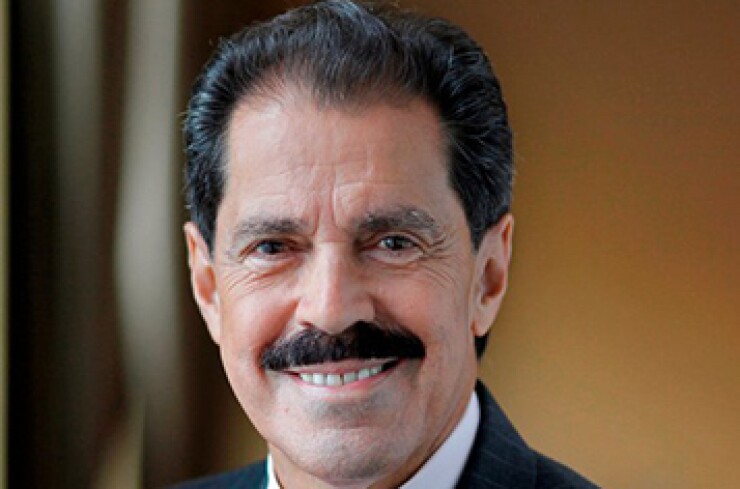
WASHINGTON – Congress must allow Puerto Rico residents to vote on statehood and establish parity between the territory and states with regard to health care and tax credits to help the island's struggling economy and address its fiscal crisis, Rep. José Serrano, D-N.Y., told a task force.
Serrano made his remarks in a letter sent to the eight-member Congressional Task Force on Economic Growth in Puerto Rico, which was created under the PROMESA law to, among other things, explore possible federal improvements that could bolster job creation, reduce child poverty, and attract investment in the commonwealth.
"The task force's work will be crucial in ensuring Puerto Rico successfully emerges from the current crisis and avoids similar problems in the future," Serrano said in a release. "As such, it is important that it includes key issues that are oftentimes considered irrelevant, given lower priority, or simply considered an afterthought when it comes to Puerto Rico's economy."
The commonwealth is currently struggling with nearly $70 billion in debt and $46 billion in unfunded pension liabilities.
Serrano told the task force that "by far the most important issue needed to address economic opportunity and development in Puerto Rico is that of political status."
"The Puerto Rican people have been treated unequally for 118 years, and it should surprise no one that the result is that Puerto Rico's economy is in shambles, its unemployment rate is too high, and hundreds of thousands of island residents have left for the mainland in search of a better quality of life," he said. "It is clear that the current economic and fiscal crisis in Puerto Rico is a direct result of this colonial status – Puerto Rico, as either a state or independent nation, would have access to the necessary assistance without further congressional action."
Serrano recommended the task force ensure that there is a clear invitation from Congress to hold a plebiscite on Puerto Rico's political status. Congress passed legislation in fiscal year 2014 that included $2.5 million to allow Puerto Rico to hold a vote on its constitutional options for status, but that vote has not taken place because of local politics, according to Serrano. The simplest option for Congress to resolve the status is through H.R. 727, the Puerto Rico Statehood Admission Process Act, which authorizes an up or down vote on statehood for the commonwealth, he said.
Serrano also said that a "key component of Puerto Rico's economic revival" involves more federal attention on health care, which will "allow the Puerto Rican government, and the Puerto Rican people, to put more money into the economy."
He cited a lack of funding for the Zika virus and inequities in Medicaid and Medicare funding when compared to states as specific areas on which Congress should concentrate.
Puerto Rico is facing a Medicaid cliff within the next two years as temporary funding under the Affordable Care Act is set to expire, he said. The commonwealth is given approximately one-tenth of what it would receive in Medicare Part D low-income subsidy funds if it were a state. Additionally, Puerto Ricans are not automatically enrolled under Medicare Part B while citizens of the 50 states do receive that benefit, he said.
Echoing prior requests to the task force from Treasury Secretary Jack Lew and Health and Human Services Secretary Sylvia Burwell, Serrano also said the task force should work to get Congress to extend the Earned Income Tax Credit to Puerto Rico and expand the Child Tax Credit to apply to all Puerto Rican families instead of only those that have three or more children.
Federal funding for Puerto Rico under the Supplemental Security Income program, which applies to indigent individuals who are older than 65, blind, or disabled, should also be increased to a more equal level with the states, he said.
Serrano added that reforming Puerto Rico's costly energy sector should be another area of focus, with the possibility that the task force could help extend federal tax credits for renewable energy and have the federal government help with technical assistance to open up the island's electricity market to competition.
The congressional task force is chaired by Sen. Orrin Hatch, R-Utah. Its members include Sens. Robert Menendez, D-N.J., Marco Rubio, R-Fla., and Bill Nelson, D-Fla., as well as Pedro Pierluisi, Puerto Rico's sole and nonvoting representative in Congress, and Reps. Tom MacArthur, R-N.J., Sean Duffy, R-Wis., and Nydia Velázquez, D-N.Y.
The task force must write a report by Dec. 31 that identifies any current impediments federal law and programs put on economic growth or health care coverage for the territory as well as recommendations to fix them. The task force also is required to provide Congress with a status update on the information that it has collected by mid-September.





